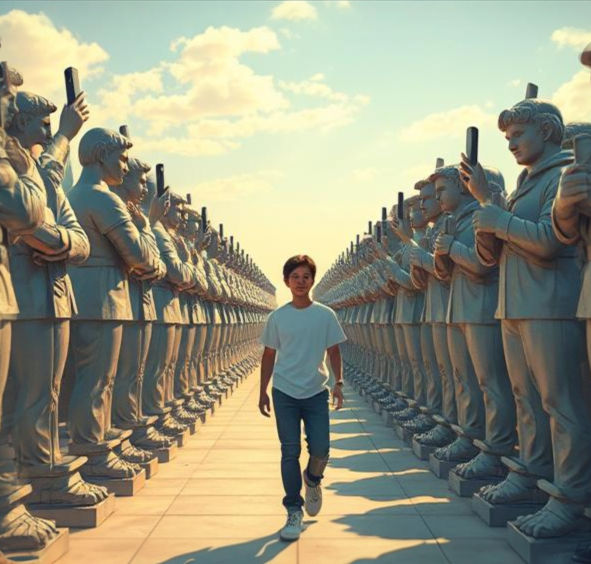Posting Less, Messaging More: Are We Quietly Leaving Social Media Behind?
- Socialode Team
- Jul 25, 2025
- 3 min read

Something subtle, but massive, is happening on social media. You might feel it in your own scrolling habits, or notice it among friends who haven’t posted in weeks (or months). Now the data backs it up: nearly a third of all users are posting less than they did just a year ago, according to a report covered by the BBC. And that trend is evident among adults in Gen Z.
So what’s driving this quiet exodus from posting? Is it burnout, boredom, or something deeper?
The Shift: From Personal Sharing to Passive Scrolling
Social media used to be, well… social. Logging in meant seeing a friend’s vacation photos, reading someone’s unfiltered thoughts, or sharing your own moments from the day. But those feeds now feel different.
“For every picture of a friend’s dog, there seem to be hundreds of posts from brands, influencers, and ads,” writes journalist Katty Kay.
As platforms like Instagram and TikTok optimize their algorithms for engagement (and advertising), the content we see has shifted from personal updates to professionally crafted, hyper-targeted entertainment. The result? A lot of users don’t feel like there's a place for them to post anymore, and if they do, it’s not reaching their real-life circles.
The Rise of “Posting Zero” - Leaving Social Media Behind
Kyle Chayka, staff writer for The New Yorker, calls it “posting zero,” the growing feeling that sharing your life online is no longer worth the effort, or the risk
.
The deal once was: post your life, gain a community. But now?
You’re sharing with algorithms, not friends.
You’re competing with AI-generated content and polished influencer reels.
You're exposed to more public scrutiny than connection.
So instead of broadcasting our lives, many of us are retreating into group chats, private DMs, and close-knit circles.
It's Not That We’re Offline — We're Just More Private
The drop in public posting doesn’t mean we’re unplugging entirely. Quite the opposite. We’re:
Still scrolling
Still messaging
Still consuming
Still reacting
But we’re choosing intimacy over exposure, something that might be particularly important for younger users who’ve grown up with both the highs and lows of life online.
In a conversation with Katty Kay, Chayka noted that today’s users, especially Gen Z, are opting for smaller spaces, curated conversations, and less pressure to perform.
“We learned the downside of broadcasting your private life online throughout the 2010s,” he says. “Now we’re waking up to the damage it’s done — and moving on.”
What Does This Mean for Social Media?
The landscape isn’t dying, but it’s evolving.
Social media isn’t going away. It remains an integral part of our daily lives.
But it’s no longer public-first. The feed is for consumption; connection is happening elsewhere.
New needs are emerging. Privacy, trust, and emotional safety are becoming core expectations, not afterthoughts.
It’s a cultural shift that reflects how we think about identity, friendship, and digital space.
Looking Forward
As this “posting zero” trend continues, we’ll likely see more movement toward platforms that prioritize real connection over performative content. A desire for meaning is replacing the appetite for attention. And while social media isn't disappearing, its purpose is being redefined, by us, the users.
It’s clear that we’re entering a new chapter, and it might make the internet a little more human again if we leave social media behind.



